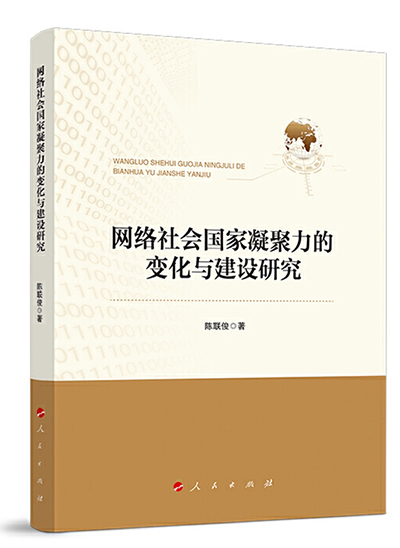How does national cohesion perform in network society?

The Change and Construction of National Cohesion in the Network Society
As a manifestation of ideology, national cohesion is an integral part of national soft power. National cohesive forces in a cyber society refer to the attractiveness and emotional appeal of a country among its citizens as the country meets the material and spiritual needs of its people in cyberspace. National cohesion in the network society is built upon the technical logic of the internet, virtual social relations and virtual social practices.
In his book The Change and Construction of National Cohesion in the Network Society, Chen Lianjun, deputy dean and a professor of the School of Marxism at Jinan University, analyzes how national cohesion arises and evolves in the network society, the ideological risks and challenges facing national cohesion and measures to address them, and how to carry out more effective governance of the network society.
The book is based on Manuel Castells’ theory of the network society, Daniel Bell’s theory of the post-industrial society, Jürgen Habermas’ theory of the public sphere, and the concept of building a community of shared future in cyberspace. Combining related research on the governance of a network society, Chen conducts theoretical and empirical analysis on how national cohesion is formed and constructed, and how it functions. The author looks into the performance, mechanisms and features involved as national cohesion changes in the network society, thereby offering proposals for strengthening national cohesion in the network society.
In addition to theoretical research on network politics, Chen also conducts an empirical survey on the current performance of national cohesion in the network society, involving stratified random sampling of five social groups including the personnel in Party and government organs, intellectuals, enterprise personnel, students, and the underprivileged. The survey sub-divides its four measurement dimensions of values, the sense of belonging, the degree of participation and exclusiveness into ten secondary indicators, including social network, civic awareness, outlooks on national power, national awareness, views of national interests, the degree of cultural identity, the rate of government interaction, the confidence to participate, the acceptance of dissent, and preference for methods of governance.
The survey reveals such problems as an urgent need for value shaping in the network society, a need to strengthen national awareness, the low effects of civic participation, and an urgent need to improve the effect of governance. Thus, attention should be paid to cultivating national awareness in the network society, strengthening civil education on rights and responsibilities, unblocking communication channels between the government and citizens, promoting the construction of the rule of law on the internet and the spread of cultural heritage, and enhancing citizens’ sense of identity and political participation.
Deng Shuangquan is from the School of International Studies at Jinan University.
edited by YANG LANLAN

 PRINT
PRINT CLOSE
CLOSE